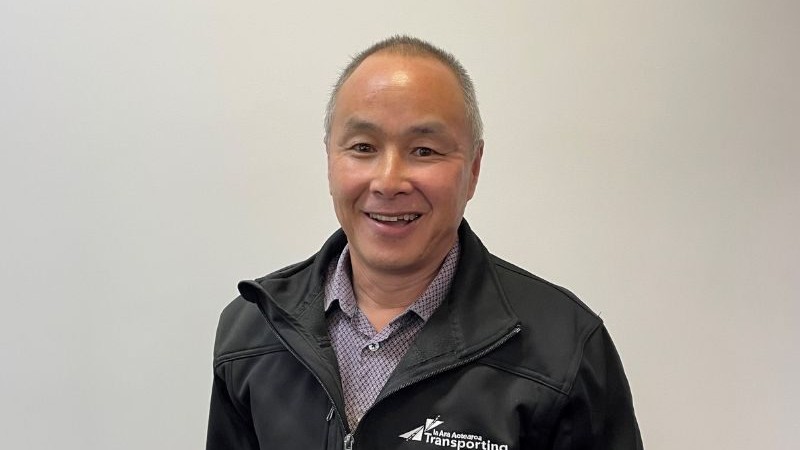A full-on week at work in Wellington – Transporting NZ

I’ve been in this role for four months and this week I thought I’d share what I’ve been up to so far this week.
On Monday I joined the Remutaka Transport Group meeting which included the four mayors from around the region, AA, Police, and Waka Kotahi. We discussed road safety issues including speed limits, wire rope barriers, heavy vehicle turning bays, and heavy vehicle by-passes.
We also discussed the legislative change made last week that enables enforcement of speed across a route point-to-point using two speed cameras, as opposed to the current approach of measuring your speed with just one. We also heard about KiwiRail’s plans to improve safety by closing some of its level crossings.
A member called about an issue they are facing with migrant drivers. The drivers have been working for several months here before unexpectedly being prohibited from driving as the regulators have deemed their overseas’ licences are not appropriate.
If those drivers can’t work they face the real risk of having to leave the country so we are working frantically with Police and Waka Kotahi to try to resolve this issue.
The day ended with a Newstalk ZB discussion on Tauranga City Council proposals for variable road pricing and how that would affect trucking.
On Wednesday morning our Policy and Projects Advisor Billy Clemens and I joined the Central Area Road Transport Association executive which discussed the constitutional reform we are working through. It was a very successful meeting, landing decisions on four key points. I was humbled by the passion and commitment of the executive members present and how much they care for the future of operators in our sector and how it is represented.
No sooner had the CARTA meeting ended and Newshub wanted an interview following a coroner’s report on the collision between a van and truck collision last year that tragically claimed seven lives in one family.
Without taking anything away from the huge amount of grief and stress this incident would have created for not only the friends and whanau of those killed and the truck driver whose vehicle was struck, it was a little consoling to spend time reflecting on what our sector is doing to help reduce the risk of fatigue.
The journalist was surprised and impressed to hear about the on-board camera technology being used in trucks to identify fatigue, and the technology being used to assess cognitive driver performance in the world-leading trial we are involved with in the livestock sector. I felt proud to be part of a group sector that is solutions-based and that’s getting on and doing stuff to improve safety.
In the afternoon NBR requested our comments on the Sustainable Business Council’s announcement that developing Renewable Freight Certificates to certify low-emissions freight routes throughout the country is a feasible and achievable option so Billy and I responded to that.
Thursday morning included a check-in with New Zealand Road Transport Assn Region 2 and CARTA on planning and organising the Rotorua Summit meeting to be held Saturday, October 7. This is going really well with a great range of content and speakers.
That was followed by a virtual meeting with Waka Kotahi’s National Journey Manager, Maintenance and Operations, to discuss potential improvements to how planned road closure information could be provided in a more user-friendly and timely way.
Currently, Waka Kotahi and its service providers are sending out a vast array of roading information. The consultative process associated with road closures is currently managed through the respective Freight Forum Group of the 14 regional groups that meet, either in person or virtually, typically every two months. Our Regional and Sector Advisers need to spend a lot of their time at those meetings and forward roading information on to members, which presents a major commitment and strain on resources. We had a very constructive discussion and we have agreed to workshop opportunities for improvement both immediately and longer term. That workshop is tentatively scheduled for early November.
The other highlight of my activities this week has been reviewing our Policy Position Papers. This has given me a chance to ensure that what we are working on is well-connected and aligned with our strategy, particularly in regard to our policies and the issues our sector groups are dealing with.
I’m pleased to see we have good alignment; however, I was also a little concerned at how many issues that need resolving are related to the need for legislative change. Those land transport rules include Worktime and Logbooks, Vehicle Dimension and Mass, Driver Licensing, and Road User.
On Friday, possibly as you’re reading this, I’m undertaking an interview to inform the Capability Review of Te Manatū Waka – Ministry of Transport.
Our policy position review was timely and valuable for me to see how much more successful our industry could be if our legislation empowered us rather than constrained us – and that’s something I’ll be raising in the MoT capability interview.
We’ve sent out an advisory this week alerting people to the funding that Inspiring Futures provides for many industry sectors. You can find out more about that here.
- Dom Kalasih, Interim Chief Executive, Ia Ara Aotearoa Transporting New Zealand





